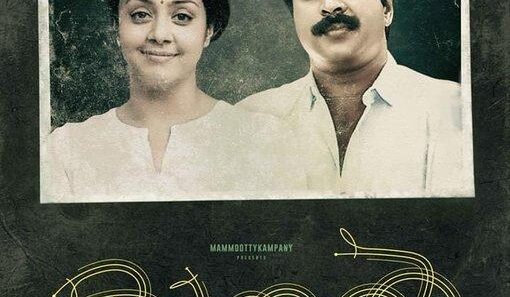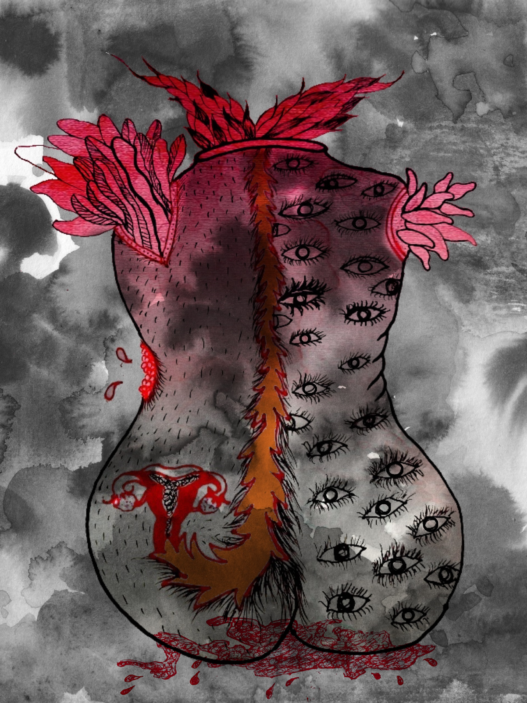আমি জীবন্ত পাখি নয়তো জ্বলন্ত আগুন !
আমি চিৎকারে আকাশ বিদীর্ণ করে জন্ম নিয়েছি,
অভিশাপের তাপে গাঁথা, মিথ্যার শিকলে বাঁধা!
আমি মুখ খোলার আগেই, নিক্ষিপ্ত হয়েছি পাপের শাস্তিতে,
আমার ভূমি—আমার জন্মদেয়াল—আমাকে নির্বাসনে ছুঁড়েছে।
কে রক্ত ঢেলে দেয় নিশুতি রাস্তায়?
কার কান্না চাপাতির ভয়ে বিবর্ণ?
কার কাব্য প্রথম কান্নায় রুদ্ধ হয়?
কার দেশ—কার পাপ—আমার ঘাড়ে কেন তার ভার?
আমি জানি!
আমি জানি!
প্রথম শ্বাসই ছিল বিদ্রোহের ডাক,
ভূমি আমায় ভাঙা কাচের মতো ছুঁড়ে ফেলেছে ধূলায়।
আমার মুখে অনির্বাণ,
আমার হাতে বজ্রের শাণিত ইস্পাত,
আমার বুকে ঘুমন্ত আগ্নেয়গিরি—
আমি থামবো না!
আমি তোমার বিষাক্ত বৃষ্টিতে দাবানলের মতো ঝলসে দেব,
তুমি আর কখনও আমাকে শিকলে বেঁধে রাখতে পারবে না।
না, আর কখনও না!
আমি অপরিচিত এখানে,
যেখানে একদিন আমার রক্তের ধারা বইতো,
আমি পালিয়ে আসা স্বপ্নের এক পলাতক,
কোনো পতাকা নয়, কোনো রাজা নয়,
শুধু ভগ্ন ডানার আর্তনাদ।
আমি হয়তো জ্বলন্ত পাখি ,
আমি হয়তো জীবন্ত আগুন !
যাকে তোমরা হত্যা করেছ,
ওরে,
চিন্তক, নাস্তিক, কবি, গায়ক, সমকামী —
ভিন্ন কণ্ঠের জন্যই রক্ত কেন ঢালেছ,
মৃত্যুর আগেই ত্যাগ করো তোমার রক্তাক্ত জন্মভূমি?
কে সত্যকে গলা টিপে মারে?
কে আমায় ডাইনি বলে,
আবার আমার লেখা,
আমার আঁকা ছবি ছিঁড়ে ফেলে?
এইটা কার দেশ?
এটা কি দেশ নাকি মানচিত্রের বেড়াজাল ?
কার দাসত্বের ফাঁদ?
আমাকে “আমাদের” বলার সাহস কার?
আমি জেনেছি, হাড়ের গভীরে —
জন্মের প্রথম চিৎকারেই
রক্ষণশীল দোলনা ভেঙে পড়েছে!
তোমার প্রিয় শান্তির চাপাতি,
কন্ঠে আমার বাজিয়ে দিয়েছে,
আমার রক্তে এখনো বাজে বিদ্রোহের তান!
জীবন্ত পাখি নয়তো জ্বলন্ত আগুন !
আমার মুখে অগ্নিবাণ,
আমার হাতে ইস্পাতের মশাল,
আমার বুকে জেগে আছে অগ্নিগিরি —
আমি থামবো না! না, কখনও না!
আমি তোমার বিষাক্ত বৃষ্টিতে
দাবানলের মতো ছড়িয়ে পড়বো,
আমি হবো সর্বগ্রাসী ঝড় —
আর তুমি, হে জল্লাদ,
আমায় শিকলে বাঁধতে পারবে না আর!
না, আর কখনও না!
মাতৃভূমি — পচুক!
জন্মভূমি — দগ্ধ হোক!
আমি তো ঋণী নই তোমার কাছে —
আমি তো কখনোই ফিরব না,
কখনোই দেখবে না আমার নতমস্তক!
আমি/আমরা সেই নির্বাসিত আত্মা,
যাকে কোনো শেকলে বাঁধা যায় না —
আমি সেই অগ্নিমূর্তি,
যার মুকুট শুধুই প্রলয়ের আগুন!
প্রিয় জন্মভূমি!
কতবার পালাবো?
কতবার রক্তাক্ত মাটিতে লুটিয়ে পড়বো?
কতবার কবর ভেঙে জেগে উঠবো —
নিজেকে বলবো, আমি আছি, আমি আছি!
আমার মুখে জ্বলছে অনির্বাণ,
আমার হাতে ইস্পাতের ঝংকার,
আমার বুকে গর্জে উঠেছে অগ্নিগিরি —
আমি থামবো না!
আমি তোমার বিষাক্ত বৃষ্টিতে
দাবানলের মতো ছুটবো —
শেকল ভাঙবো, শিকল ছিঁড়বো!
আমার মুখে অগ্নি জ্বলে,
আমার হাতে বজ্র-ইস্পাত,
একটা ছিন্নভিন্ন আকাশ,
একটা রক্তাক্ত জমিন —
আমি সেই অসীম মানবকণ্ঠ —
যাকে হত্যা করেও হত্যা করা যায় না!
আমরা আছি,
আমরা থাকবো,
আমরা জেগে উঠবো,
আমরা বাঁচবো —
জ্বলন্ত পাখি হয়ে,
জীবন্ত আগুন হয়ে!
















Hi, this is a comment.
To get started with moderating, editing, and deleting comments, please visit the Comments screen in the dashboard.
Commenter avatars come from Gravatar.